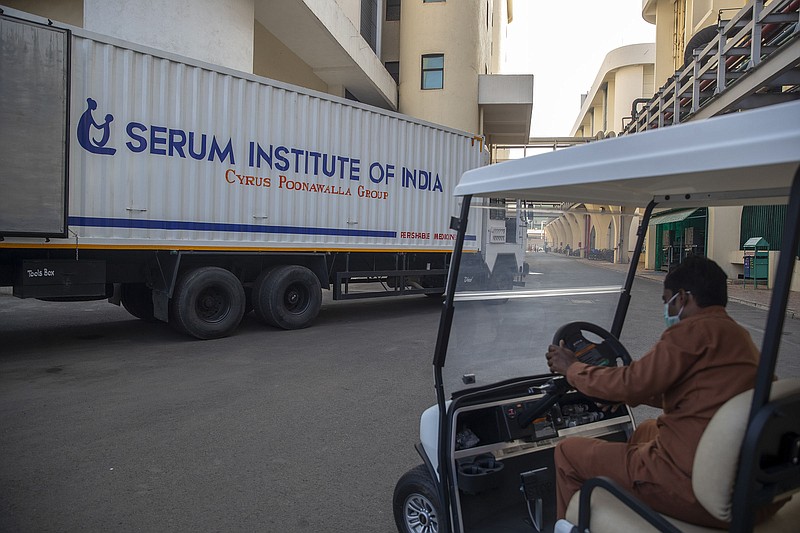BRUSSELS -- The European Union announced Friday that it will ease its restrictions on exporting covid-19 vaccines.
The commission, the EU's executive arm, said that as of January it will no longer require vaccine producers to request special authorization to export outside the 27-nation bloc.
Earlier this year when vaccines were still in short supply, the EU introduced a mechanism to keep some of the jabs it secured from AstraZeneca, the Anglo-Swedish drug company, from being diverted elsewhere.
The export control system, aimed at making sure large drug companies would respect their contracts, was used by the EU in March, when a shipment of more than a quarter million AstraZeneca vaccines destined for Australia was blocked from leaving.
When the dispute with AstraZeneca broke, the EU was lagging well behind the United States and other countries in covid-19 vaccinations. According to Stella Kyriakides, the commissioner for health, the bloc has now vaccinated more than 65% of the total EU population of some 450 million inhabitants.
The EU and AstraZeneca said in September that they reached a deal to end their legal battle over the slow pace of deliveries of the company's covid-19 vaccines.
[CORONAVIRUS: Click here for our complete coverage » arkansasonline.com/coronavirus]
EU commission spokeswoman Dana Spinant said the "transparency of exports" will be ensured by a new monitoring mechanism that will provide the commission with companies' vaccine export data.
Spinant noted that the EU is the biggest global provider of covid-19 vaccines, with more than 1.3 billion doses exported to more than 150 countries.
Amid a new significant uptick in infections in the EU, European Commission President Ursula von der Leyen said vaccinations need to be stepped up further.
"We need to convince more people to get vaccinated," she said. "The good news is that we have enough vaccine doses. By the end of this week, Europe will have delivered 1 billion doses to our member states."
Meanwhile, the Serum Institute of India, the world's largest vaccine-maker, resumed exports of coronavirus vaccines to the U.N.-backed Covax distribution program Friday after halting most overseas sales in March.
The company was to have been Covax's main supplier, but an explosion of cases in India resulted in a cutoff of exports.
At the time, Serum Institute had contracts to provide Covax with 200 million doses of AstraZeneca vaccines and unfinalized agreements to supply 350 million more. The suspension was a significant setback for global efforts to distribute vaccines equitably.
Gavi, the vaccine alliance that co-manages the Covax program, said the company had provided just under 30 million doses to it.
New infections in India have now fallen to the lowest level in months, and the first new exports under the Covax program, destined for Tajikistan, are leaving Friday evening, Serum Institute said in a statement. It said it expects exports to increase substantially in early 2022.
It said it has already produced more than a billion doses of the AstraZeneca vaccine under license, almost all for domestic use.
Serum Institute also started making the Novavax vaccine under license in June. Experts say the vaccine -- which has been greenlit by regulators in Indonesia and the Philippines -- is easier to store and transport than some others, and this may allow it to play an important role in boosting global vaccine supplies.
With the addition of the new vaccine, "We can be more hopeful that WHO's [World Health Organization] target to vaccine 70% of the world's population by the middle of the next year can be met," Serum Institute chief executive Adar Poonawalla said.
Although coronavirus restrictions have been lifted in India, the country, like others, is jittery after the detection of a new, worrisome variant in southern Africa. The federal government has asked states to scale up screening of travelers from some countries and the genetic sequencing of any detected infections.
Information for this article was contributed by Samuel Petrequin, Aniruddha Ghosal and Jamey Keaten of The Associated Press.

